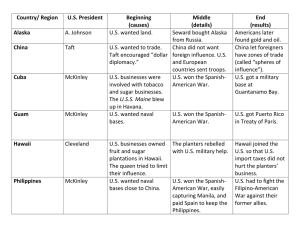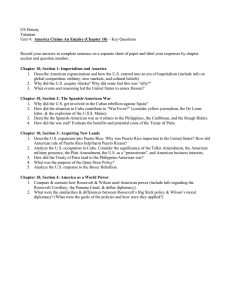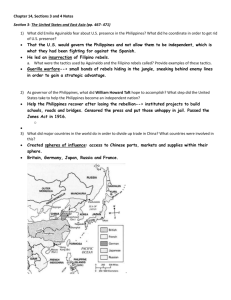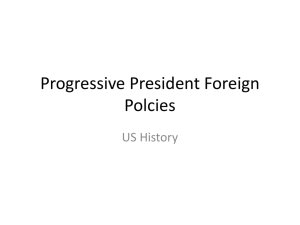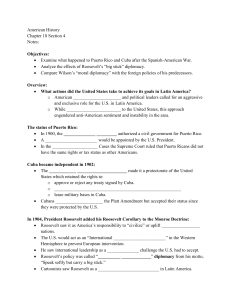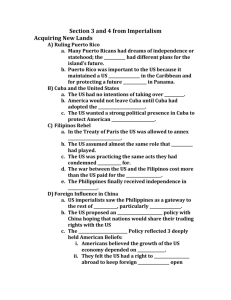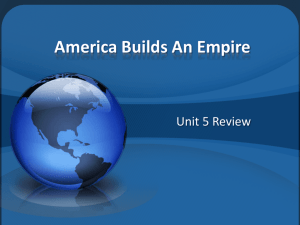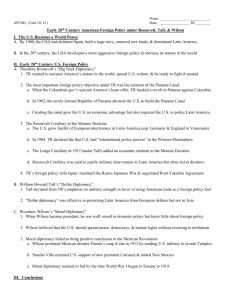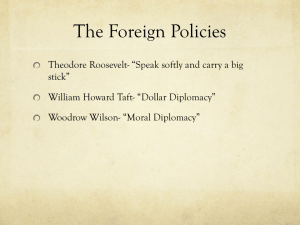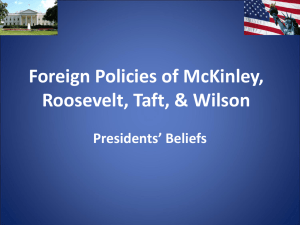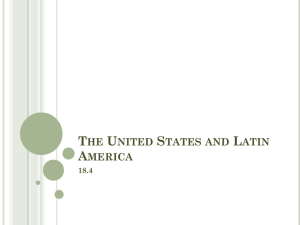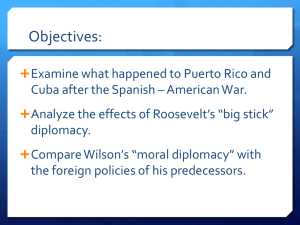US Foreign Policy: Roosevelt, Taft, Wilson Era
advertisement
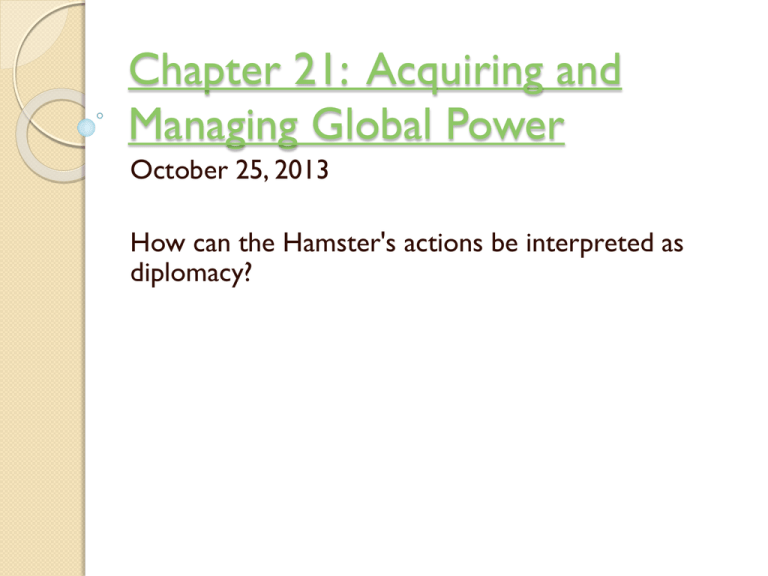
Chapter 21: Acquiring and Managing Global Power October 25, 2013 How can the Hamster's actions be interpreted as diplomacy? Roosevelt, Taft, Wilson Guiding principle for all three presidents was to serve the national interest. ◦ Set of goals – political, economic, military, and cultural that a nation considers important. Roosevelt ◦ “Speak softly and carry a big stick.” – Big Stick Policy ◦ Roosevelt Corollary Many countries in the hemisphere were still too weak to defend themselves. U.S. should be the “international police power” to preserve peace and order in the hemisphere and protect American interests. Claimed that his power would help protect weak nations Taft and Wilson Taft ◦ Dollar Diplomacy – encourage and protect American trade and investment in Latin America and Asia. ◦ Strong economic presence abroad would advance American interests. Wilson ◦ Moral Diplomacy – based on democratic ideals, rather than on economic investment or the use of force. ◦ U.S. should use its power to aid “the development of constitutional liberty in the world. ◦ F.P. based on human rights, national integrity, and opportunity. ◦ Self – Determination – right of other peoples to determine their own government, free of outside influence. Panama Canal Shortcut between Atlantic and Pacific Ocean. 1903, U.S. will encourage a revolt in Panama. ◦ Roosevelt sent warships to prevent Colombian troops from intervening. Signed a treaty with the new government of Panama to build the Panama Canal. ◦ Thousands of workers fell prey to tropical diseases. ◦ Finished in ten years. ◦ Roosevelt's most important foreign policy initiative. American Interventions Mexico and Puerto Rico Mexico ◦ By 1910, U.S. businesses had invested around $2 billion in Mexico, buying up land, banks, mines, and other properties. ◦ Revolutions ◦ Pancho Villa cross boarder raids killed numerous Americans. Puerto Rico ◦ After the Spanish American War, it instituted a military government that began to develop Puerto Rico’s infrastructure. Built schools, a postal service, built roads, and improved sanitation. ◦ Jones Act made Puerto Rico a U.S. territory; Puerto Ricans became citizens but were not granted all the rights of citizenship. Philippines and Hawaii Philippines ◦ After Spanish American War; the United States refused to recognize the new government. Fighting breaks out U.S. will respond with force, destroying villages, and hearing civilians into prison camps. 200,000 Filipinos and 5,000 Americans died Hawaii ◦ Economy of the islands centered on the export of tropical crops, especially sugarcane and pineapple. ◦ Wealthy white minority refused to establish a new constitution that gave more power to native Hawaiians. ◦ 1893, U.S. military forces landed and helped the planters overthrow the queen. ◦ After the revolt the white planters applied to Congress for annexation. ◦ Sanford B. Dole - Dole was named president of the Provisional Government of Hawaii that was formed after the coup. Serving as a friend of both Hawaiian royalty and the elite immigrant community, Dole advocated the westernization of Hawaiian government and culture. ◦ 1898 Hawaii was annexed. China Spheres of influence in China U.S. wanted to prevent foreign colonization of China in order to maintain its own access to Chinese markets. Secretary of State of John Hay issued the Open Door Policy – 1899. ◦ Enacted under President McKinley ◦ Called on foreign nations to allow free trade in China. Boxer Rebellion
